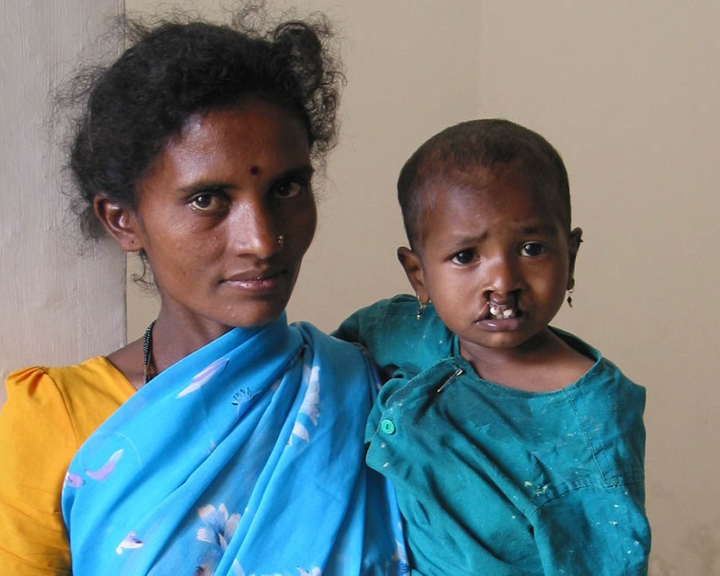New Study Reveals That Children With Orofacial Clefts In India Are 1.5 Times More Vulnerable

New Study Reveals That Children With Orofacial Clefts In India Are 1.5 Times More Vulnerable To Severe Malnutrition Compared To Other Children Under Five
New York, NY (October 7, 2022) - In a new report released today, World Smile Day, Smile Train and the Institute for Health Metrics and Evaluation (IHME) at the University of Washington’s School of Medicine find children with orofacial clefts in India are one and a half times more vulnerable to severe malnutrition compared to other children under five and that up to a third of estimated cleft lip and palate-related malnutrition deaths in children under 5 in India could be prevented with access to adequate nutrition and surgical treatment.
The report provides a first-of-its-kind look at the devastating impact of orofacial clefts worldwide over two decades, 2000 to 2020. Clefts – a gap in the lip and/or palate – occur when certain body parts and structures do not fuse together during fetal development and can cause difficulties eating, breathing, hearing, and speaking. Babies with clefts are particularly vulnerable to malnutrition as clefts affect babies’ ability to suck, often making it very difficult for them to breast- or bottle-feed.
The report synthesized two sets of data. Nutrition-related data from Smile Train’s proprietary medical record database, Smile Train Express, collected as part of Smile Train’s surgical safety and quality standards, was used to calculate the prevalence of moderate underweight condition for each country in the dataset according to the year of treatment and the patient’s age and sex.
Mortality and other impacts of malnutrition for children under five years of age globally were then estimated using IHME's Global Burden of Disease Modeling demographic group. After pairing and modifying the datasets for alignment, researchers used two meta-regression models to calculate the final results.
Key findings include:
- In India, children with clefts under the age of five are approximately 1.5 times more likely to be malnourished compared to their peers without clefts.
- In India for the period 2000-2022, it is estimated that 33.6% of malnutrition-related deaths in individuals with cleft conditions could have been prevented with timely access to adequate nutrition and surgical treatment.
- Over the past 20 years, the number of children born with clefts in India has failed to decline significantly.
- Estimated deaths in children with clefts as well as malnutrition-related deaths in those with clefts in India have declined since 2000, but that progress has been markedly slower and lagged behind the declines in malnutrition-related mortality and child mortality overall in the same time period.
- Compared to underweight children, underweight children living with clefts endure a heavier burden of poor nutrition. They face a higher risk of undernutrition and other potentially life-threatening conditions.
“By combining the forces of Smile Train’s more than 1.5 million surgical records in our Smile Train Express database, including a wealth of nutrition data, and IHME’s comprehensive set of health estimates, we now know more about cleft in India than ever before,” says Nicholas Kassebaum, MD, an associate professor at the IHME and a lead author of the study. “We hope that this is a call to action for global health leaders to take further action against undernutrition in children with cleft.”
“We know that children with clefts are so often left behind when it comes to nutrition support and we have seen first-hand that this is preventable,” Mamta Carrol, Smile Train Senior Vice President and Asia Regional Director says. “Smile Train’s 5-year commitment to scale investment in nutrition will absolutely improve outcomes of children with clefts in India, we look forward to strengthening our partnerships with government agencies and other grassroots organizations to accelerate and amplify these efforts so that we are able to reach vulnerable children at birth. Every Indian child deserves a fair chance to grow and thrive.”
###
About Smile Train: Smile Train empowers local medical professionals with training, funding, and resources to provide free cleft surgery and comprehensive cleft care to children globally. We advance a sustainable solution and scalable global health model for cleft treatment, drastically improving children’s lives, including their ability to eat, breathe, speak, and ultimately thrive. To learn more about how Smile Train's sustainable approach means donations have both an immediate and long-term impact, please visit smiletrainindia.org.
